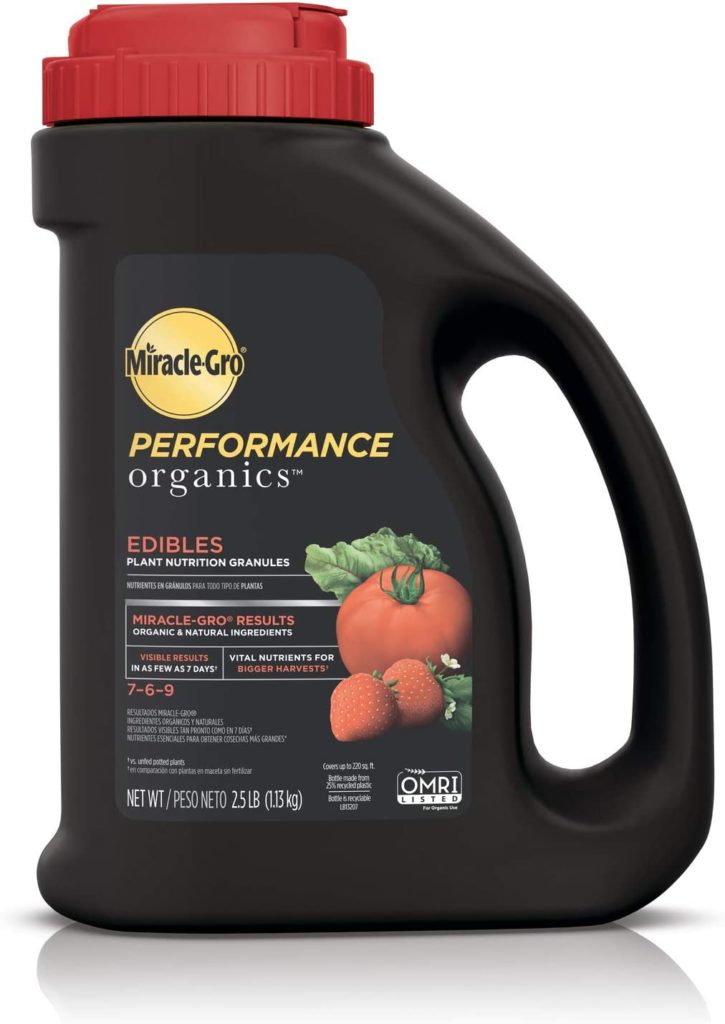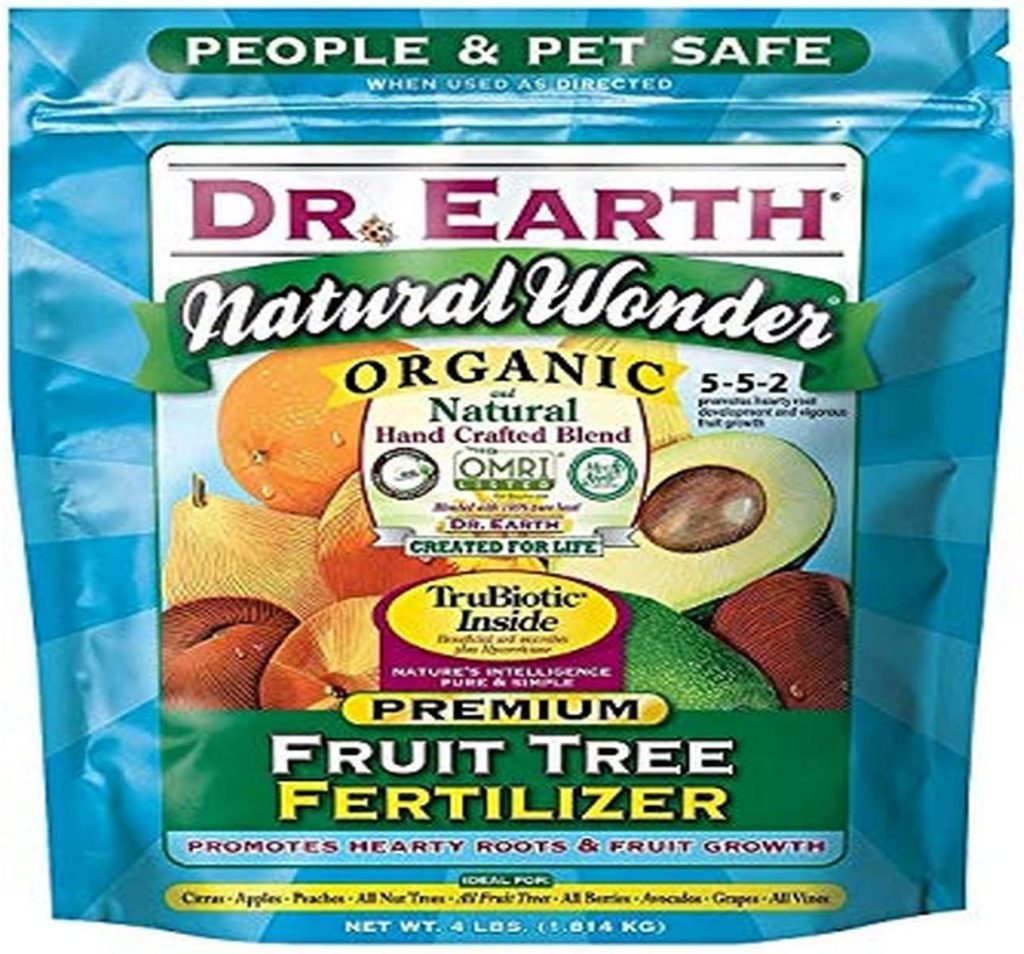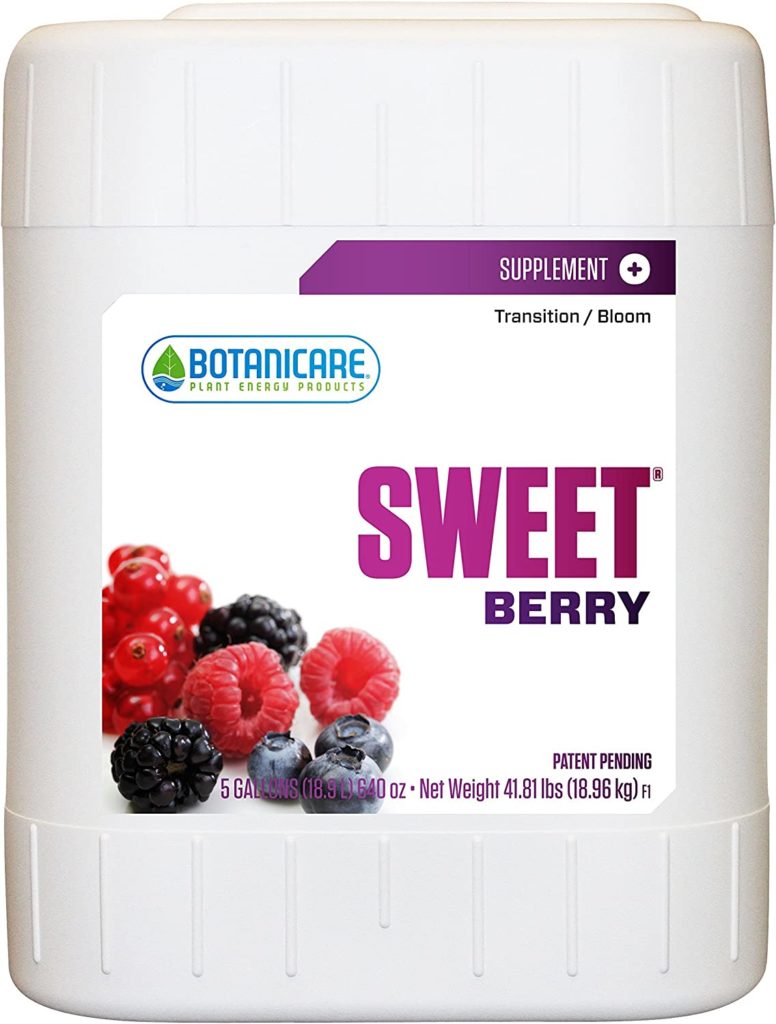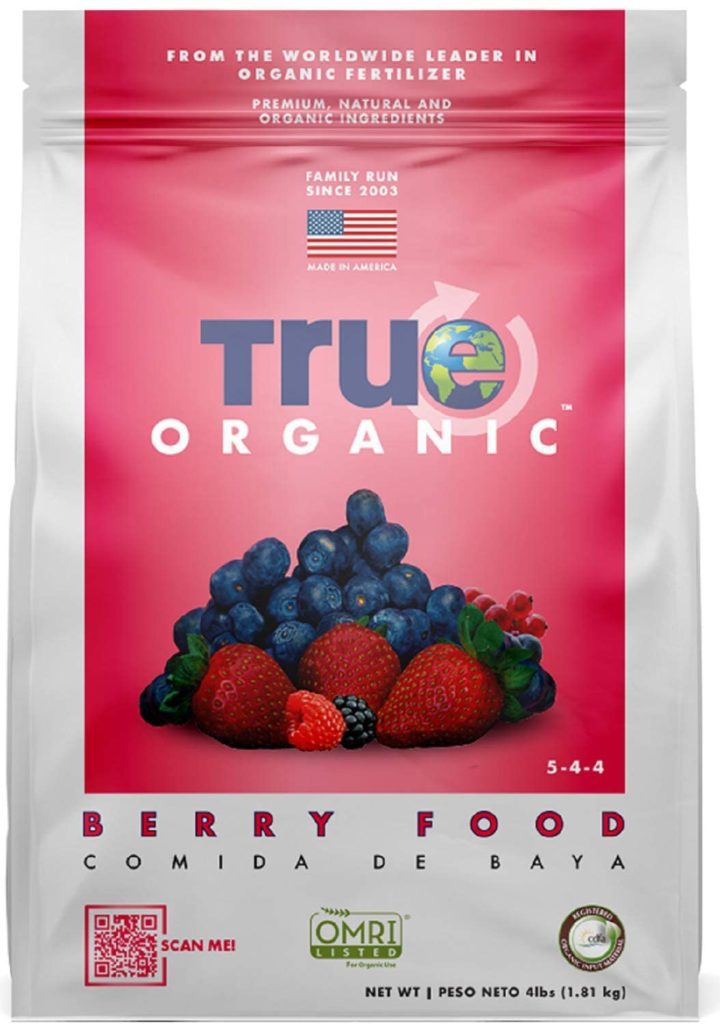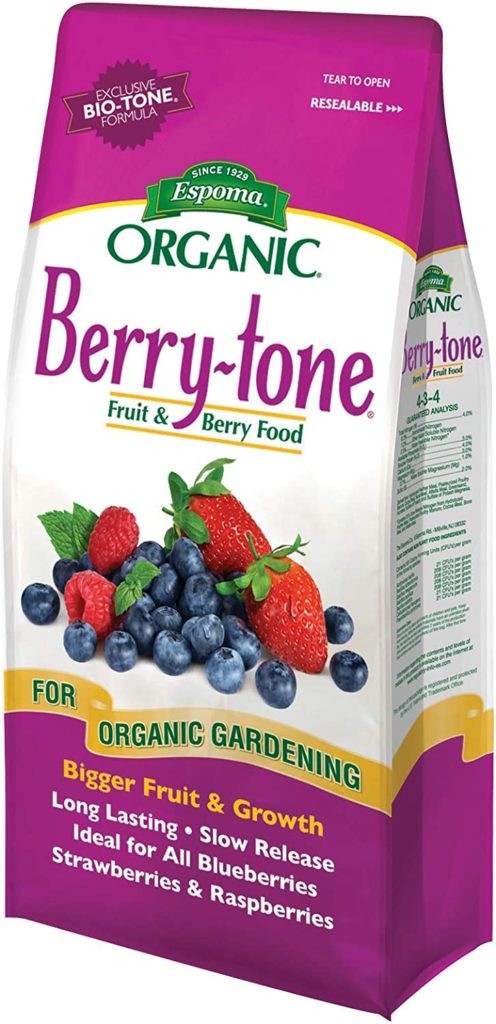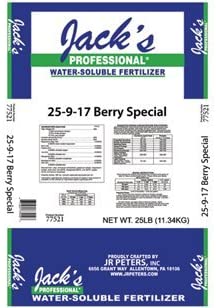Maintaining a blackberry experience is difficult because of its unique flavor and texture; it’s hard to replicate it with any other food or drink. Blackberry bushes provide a reliable supply of fruit, which may be harvested. You won’t need to micromanage the plants to ensure a fruitful harvest.
It is necessary to keep in mind that fertilization is important for cultivating a crop in good health. It’s one of the most important things you can do to increase the quality of your berries.
The nutrients in your fertilizer have a direct connection to the quality of your fruit; it is essential to understand how the formulation of fertilizer works to ensure good blackberry growth. To know more about the nutrients and their benefits to your plant, you should have the detailed knowledge of fertilizers, it’s type, ingredients and it’s uses.
A good blackberry fertilizer should have a high phosphorus concentration and a low number of other elements, such as nitrogen. Even if it’s a low amount, the best choice is the one that contains a large amount of phosphorus.
Phosphorus is essential for the production of berries because it stimulates the development of fruit on the plant.
Top Fertilizers for the Blackberry
The majority of farmers fertilize their blackberry plants just a couple of times each year, making the cultivation of blueberries a low-maintenance activity that requires little fertilizer. Choosing the right choice of fertilizer for your blackberry bushes is really important if you want to bring out their full growth potential.
As there are so many different kinds, people may find it difficult to shop for fertilizer because there is a wide selection available.
And to simplify the search process, the following items were selected according to the superior quality of their formulations, their usage, and their quality.
1. Miracle-Gro Performance Edibles Plant Nutrient Granules
Miracle-slow-release Gro’s granular fertilizer. They are the most well-known brand in the gardening industry, and this organic product is the one that is recommended by farmers the most often. The 7-6-9 nutritional content is superior for already established blackberry plants than any others on this list.
This product is incomparably simpler to use than any other on the market, thanks to the innovative way its lid is constructed.
When the temperature outside reaches 110 degrees in July, and you want to take refuge indoors, it is convenient to have this option. The low amount of nutrients is the only factor keeping the rank of this fertilizer higher on our list.
The development of the plant’s foliage outpaces that of its fruit due to a lower phosphorus concentration in contrast to the nitrogen content of the plant. On the other hand, the greater potassium concentration can work out well for you, given the circumstances. Despite all that may occur, there will constantly be advancement!
Features:
- Organic
- NPK ratio: 7-6-9
- Easy-shake container
- Granular fertilizer
- Slow-release fertilizer
Direction for Use:
To feed your potted plants, apply the fertilizer without first mixing it with water and then apply it dry. Compared to unfed potted plants, effects may be seen in as little as 7 days. Make sure you read the product label for all of the details.
- One of the most trusted brands
- Slow-releasing
- Will stimulate quick growth and development
- A large number of gardeners have praised this brand
- It has an abundance of micronutrients
- Phosphorus levels are lower
- Because of the ease of use, it’s simple to overdose
2. Dr Earth Organic Fruit Tree Fertilizer
This is the product that the gardeners like using the most. The 5-5-2 nutritional composition promotes both healthy leaf growth and delightful berry production, which is great if you have a curious dog around the house. Since it’s organic it is safe to use around your pets and kids. This fertilizer will also strengthen the roots of your blackberry bush, which will ensure the plant’s continued vitality over the long run.
Natural Wonder fertilizer is likely to be beneficial to every kind of fruit tree, berry, and flowering vine. It may be applied to fruit trees and vines actively growing in the ground at any time of the year, making it a year-round fertilizer option.
Natural Wonder Fruit Tree Fertilizer ensures that organic nutrients are thoroughly broken down and then released into the soil for plant roots to absorb as needed by using TruBiotic, a combination of five champion strains of beneficial soil microbes and 18 select strains of Ecto and endo mycorrhizae.
This results in drought tolerance, increased nutrient availability, and increased plant performance.
Features:
- NPK ratio: 5-5-2
- Organic
- Using organic compounds that release slowly
- Strengthens the roots and fruit of the plant
- Probiotic soil bacteria in seven strains
Direction for Use:
During the growth season, apply every three months. Add 2-2.5 cups to the planting hole and thoroughly water new trees. One cup for trees and two cups for vines and berries should be incorporated into the soil within the drip line of existing plants.
Mix it with water for foliar or deep root feeding. Please refer to the product label for clear instructions.
- Promotes the development of strong roots
- Slow-releasing
- Leaf growth and berry growth are both enhanced
- Organic
- Has an unpleasant and repulsive scent
3. Botanicare SWEET BERRY Mineral Supplement
Botanicare’s Sweet Berry is a taste and smell enhancer that thickens stems and encourages more robust leaves. In addition to having a delightful berry aroma and flavor, Sweet Berry is beneficial throughout the transition stages in circumstances that stimulate growth and increases the functions of respiration and photosynthesis. Sweet Berry may be used throughout the blooming period of your plant.
If you use this supplement during the vegetative stage, you may prevent soft stem and leggy growth from occurring. For plants that are beginning their transition towards blooming, this supplement aids them with ease.
Lastly, it is important to note that the process of photosynthesis and respiration remain in perfect equilibrium throughout the fruiting stage. Synthesizer for Organic Carbohydrates Botanicare Sweet’s unique composition makes it an excellent fertilizer for plants of all stages of development.
During the phase of growth known as the vegetative stage, Botanicare Sweet protects plants against the effects of excessive nitrogen concentrations by preventing them from growing lanky and having fragile stems.
Despite the fact that nitrogen levels have been artificially reduced, it provides a smooth and stress-free transition from the vegetative stage to the flowering stage at the beginning of flowering and continues to do so throughout the blooming process.
Features:
- Contains non-vegan cane sugar
- Ferrous sulfate
- Contains Epsom salt
Direction for Use:
Use with every watering throughout the whole bloom period. Mix thoroughly and adjust pH appropriately. Shake thoroughly before each use. The quantity of application is 8 milliliters per gallon. Combine between 2 and 4 ounces for every gallon of water. Use in combination with your favorite plant meals and supplements.
- Enhances the scent and taste of the fruit
- It may be used at any stage of development, and in fact, it helps in the transition from one stage to the next
- A single plant will produce a greater number of buds, flowers, and fruits as a result of this factor’s influence
- A complex mixture of carbohydrates) that is essential for the development of blackberries
- It contributes to the maintenance of the plant’s metabolism and helps build robust stems that have short internodes
- An excessive amount of this supplement might have harmful effects on plants
- It’s pricey for some gardeners
4. True Organic – Berry & Fruit Plant Food
This fertilizer has an NPK of 5-4-4, which provides a wide range of nutrients for plants. Blackberry plants benefit greatly from this ideal ratio of macronutrients, as it enables them to produce lush green foliage, robust roots, and an abundance of fruit.
When applied at the beginning of the growing season, this fertilizer provides your strawberry plant with the additional vigor and nutrition it needs for an increased yield.
By replicating and restoring the soil’s natural ecosystem of minerals and microbes, this berry fertilizer sets itself apart from other traditional fertilizers. Additional calcium and sulfur are also included in this berry plant food.
This fertilizer’s widespread use is helped along by the inclusion of a variety of other farm-grade components, such as fish bone meal, soybean meal, shell meal, and so on.
In this fertilizer, every element has some worth to it. Slow-release nitrogen and phosphorus are provided by the Seabird guano in this fertilizer. A significant portion of the nitrogen and calcium in the diet comes from shellfish meals (from crab and shrimp).
Sulfur will assist in decreasing the pH of the soil, and its presence will guarantee that nutrients are accessible throughout the soil. If you want your plants to produce the most strawberries possible, you should fertilize them once per month while they are developing.
Features:
- NPK ratio: 5-4-4
- Granular fertilizer
- OMRI-approved
Direction for Use:
Apply six tablespoons of the mixture to the soil of a single potted plant, and then work it into the top three to six inches of the soil. After that, thoroughly water the plant. In order to prepare the Garden Bed, put two cups of compost over ten square feet, work it into the top three to six inches of soil, and then water it well.
- Organic combination of all of the nutrients that are required for the different kinds of berries
- Grow big, luscious strawberries every season
- Beneficial for the soil, plants, and soil bacteria
- Recreates the soil ecosystem in a natural way
- Suitable for growing strawberries in pots or the ground
- No fillers or filth
- Can be used on acid-loving plants
- It’s a bit pricey
- Prior to application, the product should be applied in its dry state
5. Espoma Berry-Tone Fruit & Berry Food
The utilization of this particular plant food will be of great use to those who cultivate berries. Growing blackberries and strawberries using “Espoma Berry-Tone” fertilizer from Espoma is possible. This fertilizer may also be used to produce raspberries and blueberries in addition to strawberries.
Constituents of organic fertilizer include a combination of feather meal, bone meal, chicken manure, alfalfa meal, sulfate of potash, sulfate of potash magnesium, and elemental sulfur.
Additionally, the organic fertilizer contains a blend of these ingredients. In addition to calcium, magnesium, and sulfur, fertilizer also contains five percent of a wide range of other elements and micronutrients, including copper and zinc, boron and iron, manganese, molybdenum, and chlorine.
Fertilizer also contains five percent of each of these elements. This means that the proportion of nitrogen to phosphorus to calcium is 4-3-4.
The fertilizer contains 0.1 percent each of water-soluble nitrogen, ammoniacal nitrogen, and water-insoluble nitrogen. The total amount of nitrogen in the fertilizer is 0.3 percent. Because of this, there is an increase in the amount of nitrogen that the plant takes up over time.
For the blackberry plant to thrive and produce larger raspberry fruits, it is necessary for additional nutrients, such as phosphorus, potassium, calcium, and magnesium, to be present in enough quantities.
This fertilizer has been developed with the utmost care to cater to the requirements of berries, which are the principal focus of the product. The delivery of beneficial soil microorganisms is done using a product called BIO-TONE. By using BIO-TONE, it is possible to improve the structure of the soil as well as the organic content and fertility of the soil.
In addition to that, it contains 1% humic acid, which boosts the soil’s capacity to absorb nutrients and its organic content, resilience to disease and drought, and other qualities. You don’t need to go much further than this one if you want to get your hands on the best organic fertilizer for blackberries.
Features:
- NPK ratio is 4-3-4
- Granular
- organic
Direction for Use:
The first thing that must be done is to sketch and then precisely measure the drip line. For every inch of drip line diameter, one cup of liquid is used to apply the liquid. Apply the granules to the soil and water them well, using the drip line as a guide.
- Produces more fruit and has a richer bush because of its composition
- There are six different strains of beneficial bacteria in this product
- Produced with all-natural components
- Sulfur and magnesium are found in abundance in this product
- An earthy odor is present
- Rather than encouraging fruit production, it tends to stimulate leaves to develop
6. Jack’s 25-9-17 Berry Special
J R Peters Jack’s Acid Fertilizer is one of the greatest water-soluble fertilizers on the market today. An acidic soil-loving plant feeds with a 25-9-17 ratio. Many berry pickers believe this is the best fertilizer for blueberries and strawberries.
Others that benefit from this kind of feed include cypress and fir trees as well as azaleas and magnolias. A great source of Nitrogen for the blackberry plant, having a molecular formula of 25-9-17.
Green leaves, plentiful roots, and a bumper crop are all a result of the nitrogen-rich soil. Ammoniacal nitrogen accounts for 10.58 percent of the total Nitrogen content, whereas urea nitrogen accounts for 6.42 percent. Urea feeds because of a variety of problems, but this formulation simply contains enough urea to boost production.
Because of this, blackberries may thrive in soil that is more suited to their needs. Additionally, boron is 0.02 percent and sulfur is 14%, while copper and manganese are 0.05 and iron is 0.3 percent and molybdenum is 0.0009, and zinc is 0.05 percent.
There are chelates for all of the trace elements, making them more stable. The coat extends its lifespan, allowing the plant to make use of them. In addition, the fertilizer comes in a form that is soluble in water and may be mixed in an instant when it is applied to roots that are moist.
Overfeeding is unlikely since the fertilizer’s components are all produced from non-toxic substances.
Features:
- NPK ratio: 25-9-17
- An acidic composition
- Magnesium, sulfur, and other trace elements are included in the additions
- Easily dissolvable
- Crops of blueberries, blackberries, raspberries, strawberries, and cranberries may all benefit from fertilization with this substance
Direction for Use:
There are no messy chemicals to deal with when using this fertilizer; just mix it with water and apply. The low dose is directly related to the concentration’s high level. For outdoor plants, use 1 tablespoon per gallon of water and fertilize once every 10 to 14 days, depending on the season.
Indoor plants, on the other hand, need an additional 1/4 teaspoon per gallon of water every time they are watered. The quantity is still minimal in comparison to a lot of other fertilizers, which means that the 1.5-pound tub ought to last for a very long time.
- Fertilizer with high acid content
- Highly soluble in water
- Nitrogen is abundant in this substance
- Contains both major and minor components
- It’s simple to use
- This product has urea in it
- For best results, use it every 10 to 14 days
Frequently Asked Questions:
The most typical reason for a blackberry plant to have leaves that have turned red is an inadequate supply of magnesium. Magnesium may be increased by using Epsom salts, which should be added to the soil that surrounds the plant.
• Mulching is an important practice to maintain moisture levels and prevent weed growth throughout the year. It is important that plants at all times have a thick layer of mulch around them.
• Blackberries need a lot of water both when growing and while they are maturing. You should stick to a watering schedule of one inch for your plants in hot weather.
• You should feed your blackberry plants in the spring using an all-purpose fertilizer such as 10-10-10 or 16-16-8.
Anytime between the last spring freeze and about two weeks before the first fall freeze is acceptable to the standards.
• Planting should occur during the winter or spring months when the canes are in their dormant state.
• Planting should be put off until the beginning of spring in colder places since there is a possibility that some hybrid cultivars may die from the low temperatures.
• Since blackberries and their hybrids are all self-fertile, it is not necessary to have many plants to get fruit from them.
You must first ensure adequate drainage. If your soil is poor, you may obtain excellent soil for growing bushes by digging 12-15 inches deep in the loose dirt and adding compost, manure, and/or potting soil, and even sand.
Apply 3-4 ounces of a balanced fertilizer, such as 10-10-10, to a 12-inch radius around the plant at the time of planting and again after harvest. Weekly application of foliar spray is also advised.
Conclusion
When choosing the best fertilizer for your blackberry shrub, it is important to consider several different things. These elements include the required nutrients, the amount of acidity that is present, and the kind of fertilizer.
With the right fertilizer, you’ll be selecting juicy blackberries and harvesting an abundance of fruits in no time. You’ll be able to enjoy fresh blackberries all summer long, thanks to this great fertilizer.

